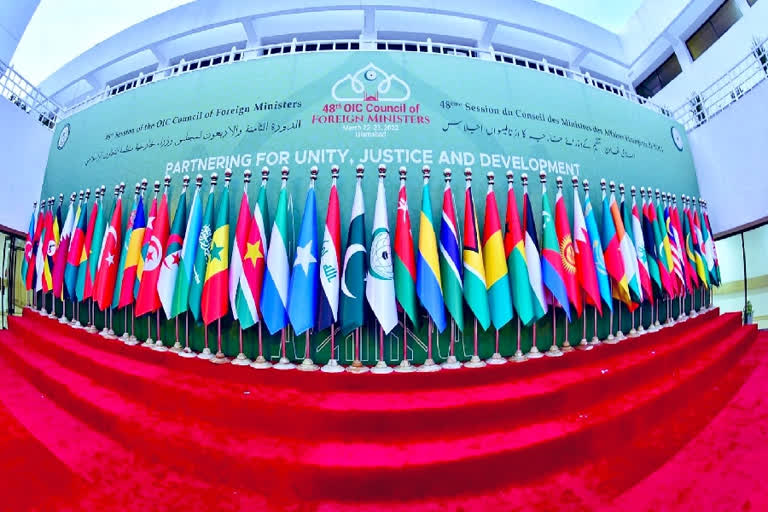New Delhi: In the first ever address by a senior Chinese leader at a session of the OIC (Organisation of Islamic Cooperation), the Chinese foreign minister and state counselor did not have much to say on the vexed Kashmir issue on Tuesday—much to Pakistan’s chagrin.
China’s foreign minister Wang Yi mentioned Kashmir just once in his address and only in passing even as PM of the host nation Imran Khan and foreign minister Shah Mahmood Qureshi tried to rake up the issue of Kashmir along with Palestine. Choosing not to sound very bellicose on Kashmir, and almost as if in passing, on Tuesday, foreign minister Wang said: “On the Kashmir issue, we have once again heard the call of many Islamic friends. China shares the same aspiration.” And that was it.
OIC is a body that has 57 Muslim nations as members and is justifiably taken as the collective voice of about 1.5 billion Muslims. The 48th session of the OIC—themed ‘Partnering for Unity, Justice and Development’—is being organized as a two-day event in the Pakistani capital from Tuesday. On the other hand, the Pak PM said in his keynote address: “We have failed both the people of Palestine and Kashmir… I am sad to say that we have been able to make no impact at all. They don’t take us seriously. We are a divided house and they (Israel and India) know it.”
Foreign minister Qureshi too added his bit: “The Muslims of Palestine and the Indian Illegally Occupied Jammu and Kashmir (IIOJK) are still reeling under abominable subjugation. For the last seven decades, they have struggled to achieve their inalienable right to self-determination.” There may be several reasons for China’s subdued tone.
First, just after the Pakistan visit, minister Wang is likely to embark on a two-day visit to New Delhi on Thursday and Friday. In the backdrop of the ongoing military faceoff across the LAC, China wouldn’t want to begin with a bad note, particularly when the two Asian giants are already making reconciliatory noises. Second, China’s traditional position on Kashmir is that it is a bilateral issue between India and Pakistan and vocalizing it too much would lead to an internationalising of the situation which might harm Chinese interest as alternative platforms of mediation may emerge. Kashmir remaining in the bilateral realm suits China much better as its leverage is much greater.
Also read: China has no locus standi to comment on India’s internal matters: MEA
Third, faced with growing US-led sanctions and the need to override it, Russia and China had already begun efforts to shift from the dollar-based mode of exchange in international business and commercial transactions. In order to present a successful alternative system of international transaction, they would need more and more countries to join in and include the new mode of conducting transactions. With India refusing to condemn Russia’s military action in Ukraine, it is seen as a potential candidate for the effort.
Fourth, the Ukraine crisis that began on February 24 has presented some common ground of interests and positions between the two neighbours with Russia being the common factor between the two. Both India and China are among the very small clutch of nations that have consistently refused to condemn Russia vehemently. On the contrary, India has already braved the threat of stringent US economic sanctions by persisting on buying the S-400 air defence system from Russia and other weapon systems and platforms and even maintain trade ties including buying oil, a position similar to and actively pursued by China.
Fifthly, the ‘Quad’—a multilateral platform comprising India, US, Australia and Japan—has been reduced to a poor avatar of its initially envisaged structure with the change of power from Donald Trump to Joe Biden in the US. For China, the time may be opportune to improve relations with India and step back from the massive deployment of men and material by both nations at their borders—an effort that has proved financially wasteful in a Covid-plagued world. But at the same time, China’s presence at the OIC meet underlined its growing clout and influence in the Islamic world despite reportedly oppressive measures against its Muslim Uighur population in Xinjiang province.
Also read: India refutes references made to J&K in a joint statement from China, Pakistan



